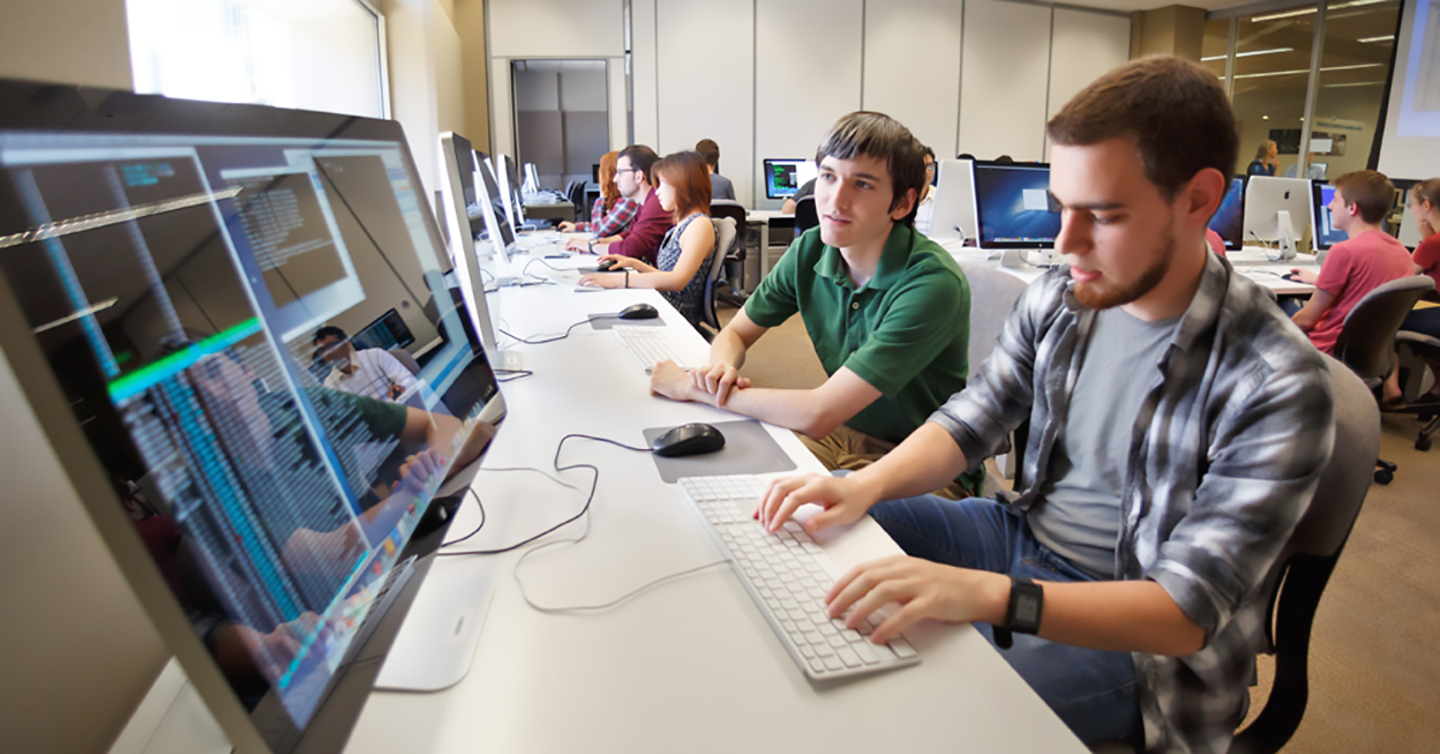Some professional activities have existed for millennia. People understand the body of knowledge that surrounds the words “Physics”, “Medicine”, and “Law”. But computer science, being only a few decades old, hasn’t had time to gather its deserved mainstream awareness, besides being one of the top fields of our era.

Computer science is the study of how best to solve problems via automated, step-by-step computations. It encompasses the skills required to get computers to do what you want, as effectively as possible. This has strong foundations in both theory and practice.
Computer Science is Engineering
In the practical sphere, computer science guides you to build problem-solving software. It trains you to understand problems and come up with step-by-step solutions. And it teaches you to codify those steps in computer programs people use in the real world. Dynamic websites, smartphone apps, systems that guide airplanes—these are the kinds of artifacts computer scientists specialize in creating.
Computer Science is Science
On the theoretical side, computer science investigates what types of problems can even be solved in the first place. It organizes problems into groups based on the simplicity of solving them. It pushes the boundaries of mathematics in the quest to find the limits in the efficiency of solving problems.
Computer science teaches you the ways that computers work with information, and the different processes by which information itself can be operated upon—and the implications of working with data in a given way, over other alternatives.
To effectively solve non-trivial problems, you must be proficient in both theory and practice. With an education in computer science, you’ll be capable of creating complex software that will work as people expect them to—and ensure computers are used as efficiently as possible in the process.
The amalgamation of both theory and practice makes computer science unique. Usually, people separate the study and advancement of natural sciences (think of physics, chemistry, biology) and the applications of said sciences (engineering and medicine). Not in computer science. Here, design aspects and theoretical concepts rapidly advance together, which is why they are seen as one entity.
That’s why computer science is recognized as part of the engineerings, and also the natural sciences, and also the formal sciences. It’s perhaps the most inclusive field of study currently available.
Computer science has practical applications in nearly all fields such as biology, economics, healthcare and sociology. Using computers to address problems in those fields gives you a strong competitive edge.
Still unconvinced how cool computer science is? Just think of the vast array of subfields it has. After you learn the core of computer science, you can specialize in anything. For instance:
- You can focus on artificial intelligence and help design automated driving vehicles.
- You can pick computer graphics, and help to make virtual reality even more realistic.
- You could assist doctors in detecting cancer earlier by using machine learning.
- You may become a systems design expert and design the next digital currency, providing free banking for everyone.
There are a plethora of possibilities when it comes to computer science. The choice is up to you on where your focus will be in this field.
For a first contact with computer science, see the book Computer Science Distilled. It’s a slim intro to computer science that will give you an overview of the main topics. Check it out!
References
- Map of Computer Science—an excellent 10-minute video exposes all the different fields of computer science.
- Computer scientists really are engineers, honor society concludes at meeting
- Is Computer Science Science?

Why not publishing your book in portuguese too?
Hi Felipe! Well, because I don’t have the resources… managing Code Energy already draws all my free time, I barely have enough time to do anything else other than my regular work. If you know of a Portuguese/Brazilian press that is willing to publish my book, let me know. The book was already translated to Korean and Russian.
Great article! Very good. Oss
I really would like to learn compure science!
Hi Wladston, I’m currently learning full-stack development in a coding Bootcamp – never studied Comp Science or IT before. I’ve been thinking of studying computer science to get the comp science basics – because, honestly I’ve been feeling inferior to computer science students. Does your book “Computer Science Distilled” have all the comp science basics I need or will I still need to go to college? Because there’s no need to go to college if I can run with this magic book and combine it with my coding skills to become a Rockstar Developer.
Hi Jeremy! First, remember not having some knowledge doesn’t make you inferior. Going to college, or submitting yourself to any kind of institution isn’t required for learning a technical skill. “Computer Science Distilled” is designed to provide you an introduction to the field. If you want to go deep into problem-solving and you like the academic world, going to college could be a good choice. You can certainly use the book to discover whether you’re interesting into going deeper. To become a rockstar developer, the only thing that is required is that you have LOTS of coding practice with a concerned effort to keep coding better and better every day.